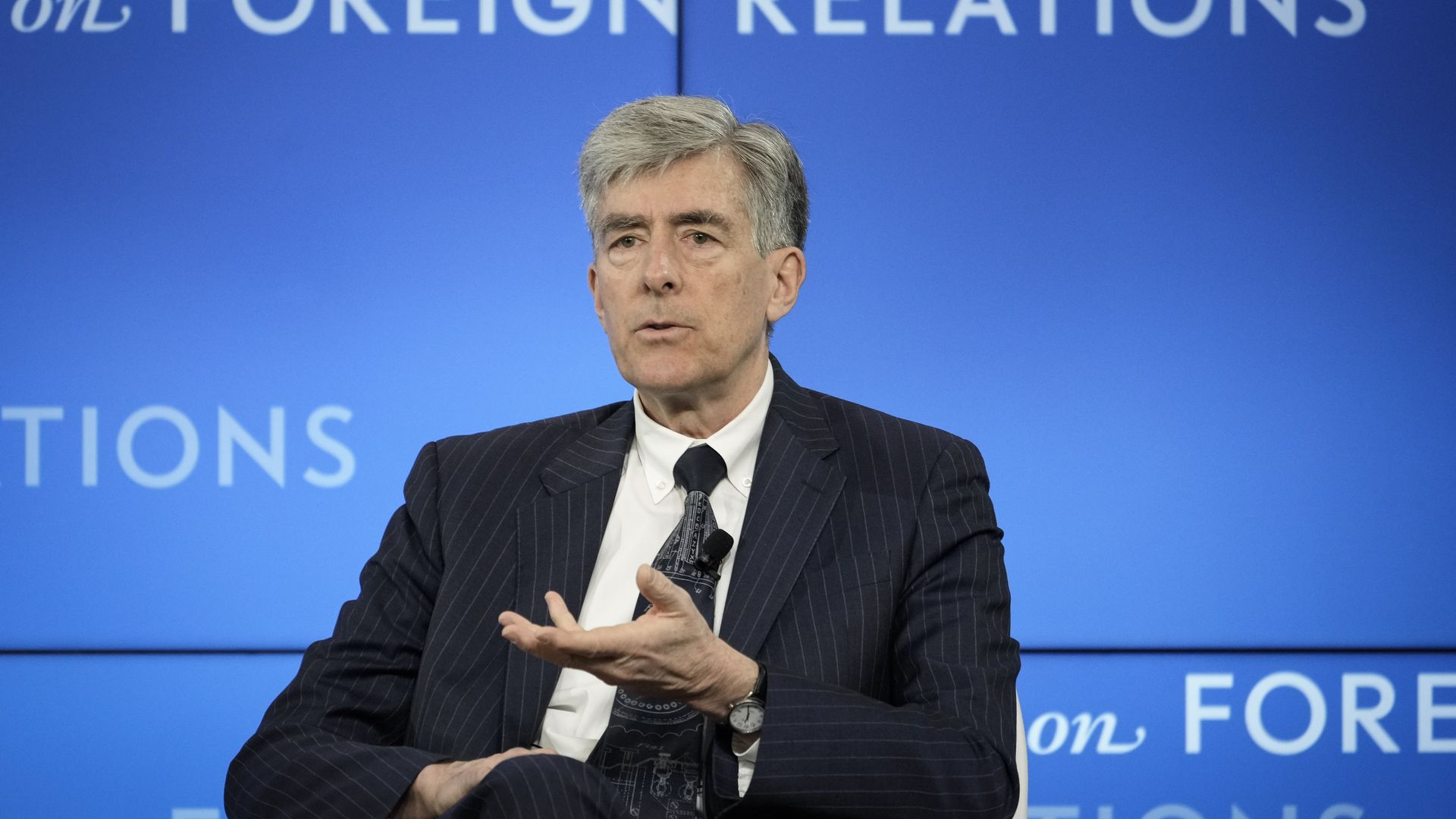Top Biden administration cyber official planning to step down
Add Axios as your preferred source to
see more of our stories on Google.

White House National Cyber Director Chris Inglis at the Council of Foreign Relations in April 2022 in Washington, DC. Photo: Drew Angerer/Getty Images
Chris Inglis, the first-ever national cyber director, is preparing to step down after spending the last 18 months standing up the new White House office, two sources familiar with the matter tell Axios.
Why it matters: The move, which could happen as early as next month and was first reported by CNN, would push the Office of the National Cyber Director (ONCD) into a new era after establishing a core team and solidifying its role in the nation's cyber defense strategy.
The big picture: Inglis spent the bulk of his tenure growing the office from one person in July 2021 to nearly 70 employees as of last month, and creating solid working relationships with federal agencies and the private sector.
- He is a veteran government cybersecurity official, spending close to 30 years at the National Security Agency.
- Inglis plans to retire after stepping down in the next two months, according to the sources.
Flashback: Congress created the ONCD in early 2021 to lead the federal government's cybersecurity strategy following the discovery that Russian state-backed hackers had infiltrated parts of the U.S. government.
- ONCD has helmed the creation of a national cyber strategy, which is still under administration review, and hosted forums on a variety of topics from electric vehicle cyber concerns to cyber workforce and education issues.
Details: Kemba Walden, the principal deputy national cyber director, is expected to be named the acting national cyber director, one source told Axios.
- Walden joined ONCD from Microsoft in May as part of a larger leadership build-out in the office.
- Inglis told CNN earlier today he always anticipated standing up the office and then leaving it to good hands, although he did not confirm his retirement plans.
- An ONCD spokesperson did not respond to a request for comment.
The intrigue: While the national cyber director's office has grown, it still faces questions from lobbyists and other stakeholders about where it fits in the broader federal cyber landscape.
- The White House's National Security Council and the Cybersecurity and Infrastructure Security Agency also both play leading roles in establishing the country's cyber strategy.
Sign up for Axios’ cybersecurity newsletter Codebook here.
